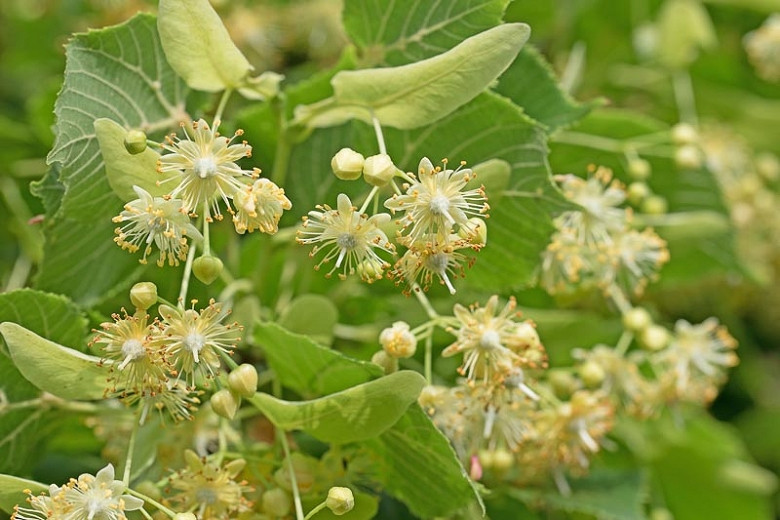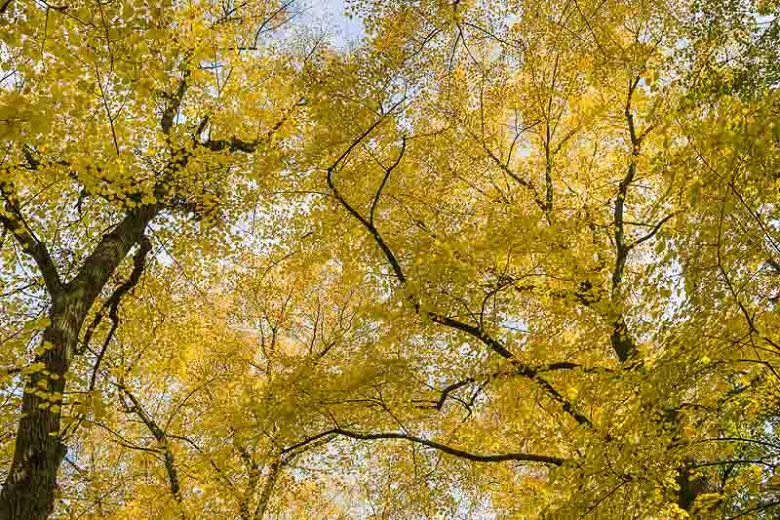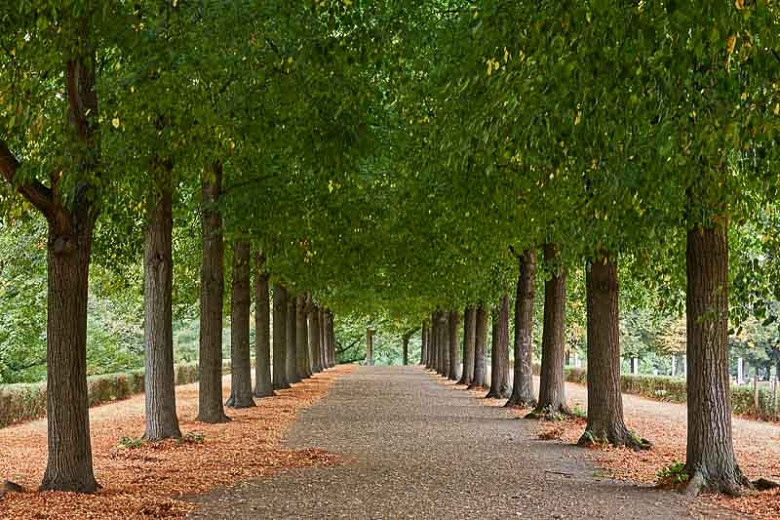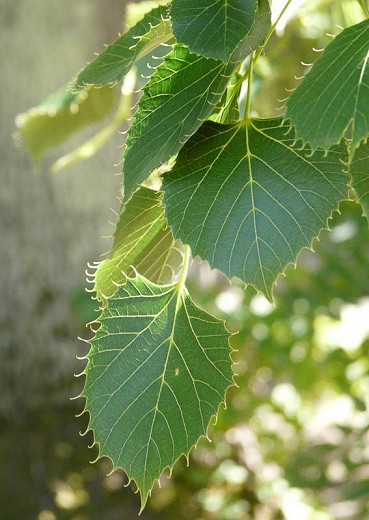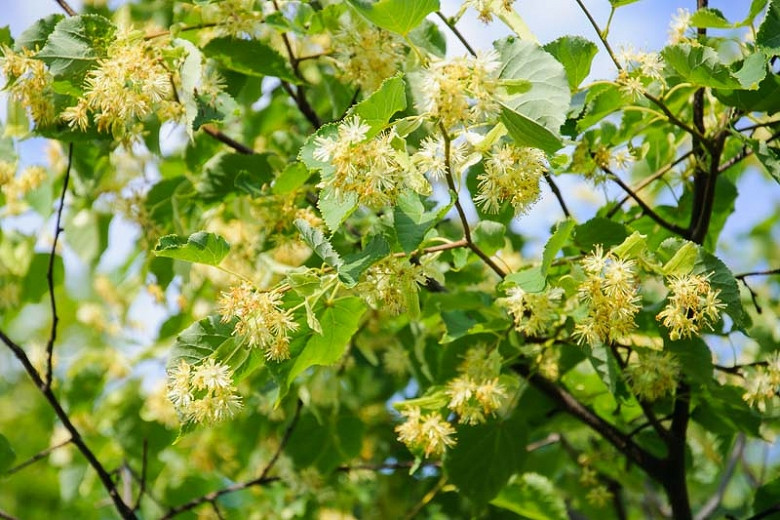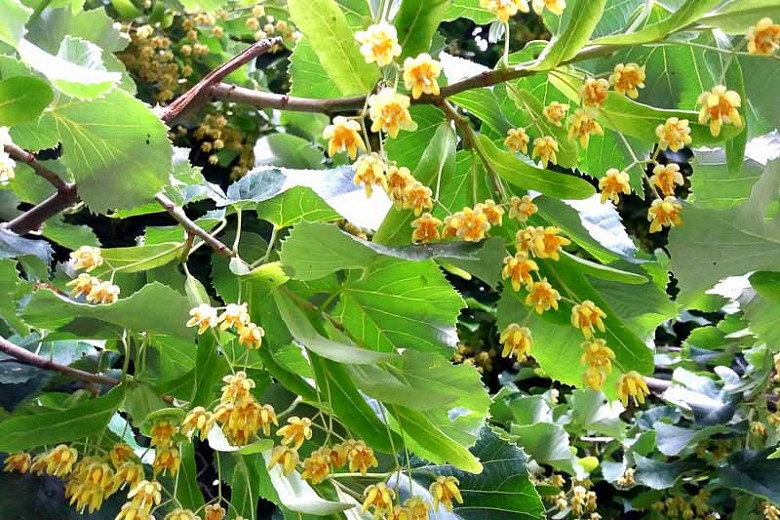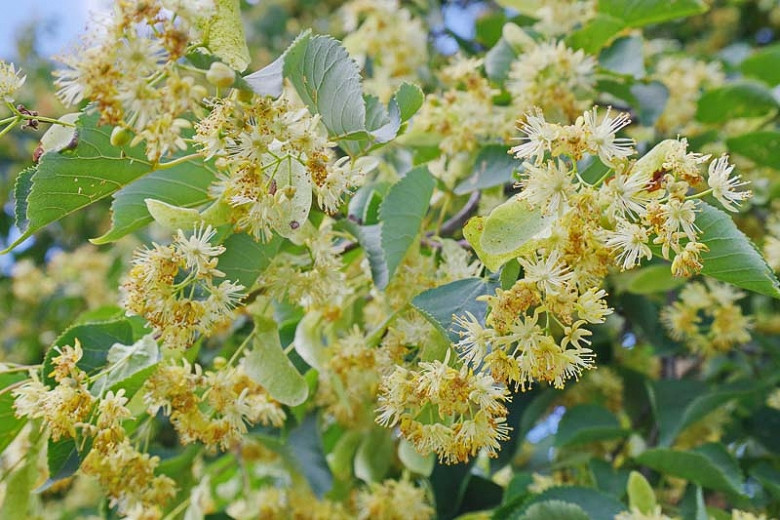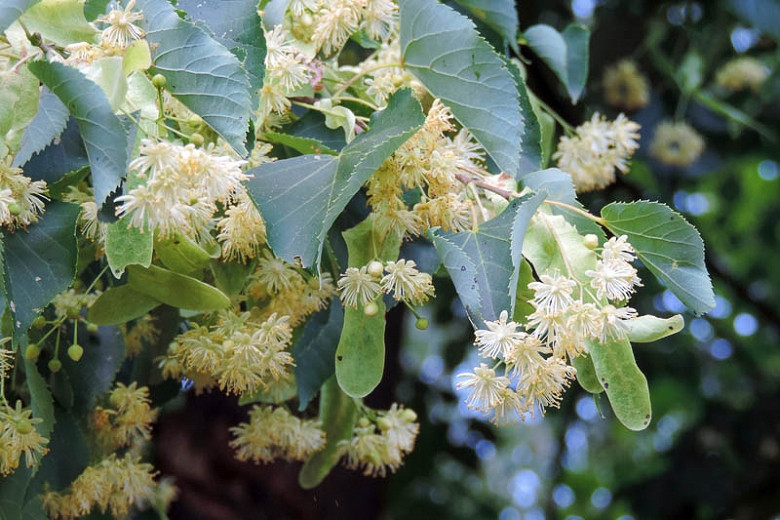Tilia cordata (Littleleaf Linden)
Long-lived, Tilia cordata (Littleleaf Linden) is a large deciduous tree of pyramidal habit in youth, becoming pyramidal-rounded with age. Densely branched, it is clothed in glossy, heart-shaped, dark green leaves, up to 3 in. long (7cm), turning yellow in the fall. In early summer, small, fragrant creamy-white flowers are borne in spreading clusters. Rich in nectar, they are highly attractive to bees.
Long-lived, Tilia cordata (Littleleaf Linden) is a large deciduous tree of pyramidal habit in youth, becoming pyramidal-rounded with age. Densely branched, it is clothed in glossy, heart-shaped, dark green leaves, up to 3 in. long (7cm), turning yellow in the fall. In early summer, small, fragrant creamy-white flowers are borne in spreading clusters. Rich in nectar, they are highly attractive to bees. Hives placed around flowering trees yield prized fragrant honey. The blossoms are followed by small nutlets that ripen in late summer. A first-rate shade, street, or lawn tree. Grow as free-standing specimens or as avenue trees. Tolerant of heavy pruning, Littleleaf Linden may be grown as a hedge.
- Grows up to 50-70 ft. tall (15-21 m) and 35-50 ft. wide (9-15 m).
- A full sun to part shade lover, this plant is easily grown in average, medium moisture, well-drained soils. Prefers moist, fertile, well-drained loams.
- Keep an eye out for aphids, horse chestnut scale, caterpillars, sawflies, gall mites and phytophthora root diseases.
- Native to Europe, southwestern Asia.
Requirements
| Hardiness | 3 – 8 |
|---|---|
| Heat Zones | 1 – 8 |
| Climate Zones | 1, 1A, 1B, 2, 2A, 2B, 3, 3A, 3B, 4, 5, 6, 7, 8, 9, 10, 11, 12, 13, 14, 15, 16, 17 |
| Plant Type | Trees |
| Plant Family | Tilia – Lindens |
| Exposure | Full Sun, Partial Sun |
| Season of Interest | Spring (Mid,Late)Summer (Early,Mid,Late)Fall |
| Height | 50' – 70' (15m – 21m) |
| Spread | 35' – 50' (10.5m – 15m) |
| Water Needs | Average |
| Maintenance | Low |
| Soil Type | Chalk, Clay, Sand |
| Soil pH | Alkaline, Neutral |
| Soil Drainage | Moist but Well-Drained, Well-Drained |
| Characteristics | Fragrant, Showy |
| Native Plants | United Kingdom |
| Tolerance | Drought |
| Attracts | Bees, Butterflies |
| Garden Uses | Hedges and Screens |
| Garden Styles | Prairie and Meadow |
